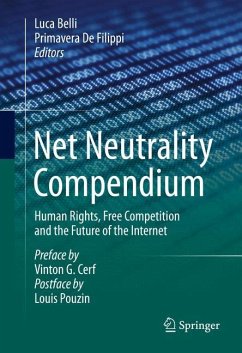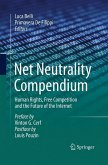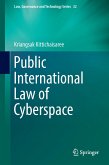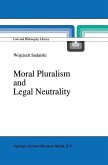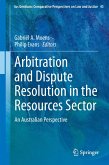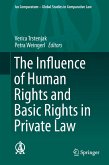The ways in which Internet traffic is managed have direct consequences on Internet users' rights as well as on their capability to compete on a level playing field. Network neutrality mandates to treat Internet traffic in a non-discriminatory fashion in order to maximise end users' freedom and safeguard an open Internet.
This book is the result of a collective work aimed at providing deeper insight into what is network neutrality, how does it relates to human rights and free competition and how to properly frame this key issue through sustainable policies and regulations. The Net Neutrality Compendium stems from three years of discussions nurtured by the members of the Dynamic Coalition on Network Neutrality (DCNN), an open and multi-stakeholder group, established under the aegis of the United Nations Internet Governance Forum (IGF).
This book is the result of a collective work aimed at providing deeper insight into what is network neutrality, how does it relates to human rights and free competition and how to properly frame this key issue through sustainable policies and regulations. The Net Neutrality Compendium stems from three years of discussions nurtured by the members of the Dynamic Coalition on Network Neutrality (DCNN), an open and multi-stakeholder group, established under the aegis of the United Nations Internet Governance Forum (IGF).
"The editors have succeeded in an inclusive approach that enables a holistic understanding of NN ... . the reader is presented with a well-versed compendium of ideas ... . Overall, the compendium on NN manages to incorporate many voices and opinions in its pages, and more importantly voices and opinions that represent the multistakeholder nature it wishes to promote." (Evgenia Kanellopoulou, Computer and Telecommunications Law Review, Vol. 22 (5), 2016)

